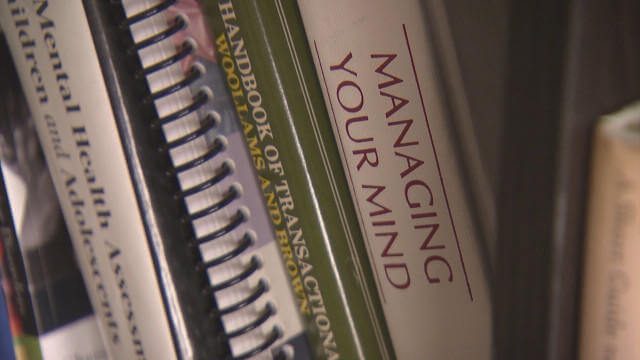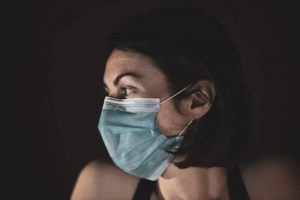Reading Time: 4 minutes
Post-traumatic stress disorder (PTSD) is a factor to pay heed to our attention. Fear psychosis during this pandemic lockdown can make matters worse, warns Tabassum. An exclusive for Different Truths.
 These are unsettling times. Our daily lives routine has changed. We are confined at home. Some are suffering from fear or panic. People are not used to such situations. It is not wartime. But in a way, it is a war against an invisible enemy that has no boundaries. Even the most privileged ones are not untouchable.
These are unsettling times. Our daily lives routine has changed. We are confined at home. Some are suffering from fear or panic. People are not used to such situations. It is not wartime. But in a way, it is a war against an invisible enemy that has no boundaries. Even the most privileged ones are not untouchable.
We need to stay calm and feel less stressed. Post-traumatic stress disorder (PTSD) is a factor to pay heed to our attention. What is PTSD?
Types of events that can lead to PTSD include serious accidents. Physical or sexual assault. We might not go through physical and sexual assaults during the lockdown, but we are stressed and going through profound mental stress.
PTSD can develop after a very stressful, frightening or distressing event, or after a prolonged traumatic experience. Types of events that can lead to PTSD include serious accidents. Physical or sexual assault. We might not go through physical and sexual assaults during the lockdown, but we are stressed and going through profound mental stress.
But we cannot rule out the emergence of PTSD. Because it is an illness. It involves exposure to trauma involving death or the threat of death, serious injury, or sexual violence. Something is traumatic when it is very frightening, overwhelming and causes a lot of distress. Symptoms usually start within three months of trauma. But they might not show up until years afterwards. They last for at least a month. Without treatment, you can have PTSD for years or even the rest of your life. The condition is defined by symptoms like panic attacks, depression, and insomnia. For those who do live with PTSD, symptoms can interfere with their daily lives.
If left untreated, PTSD can also increase the chances of developing depression, anxiety, substance abuse, eating disorders, and suicidal thoughts or actions. We have seen reports of suicides during the lockdown and suicides after diagnosed with COVID-19.
If left untreated, PTSD can also increase the chances of developing depression, anxiety, substance abuse, eating disorders, and suicidal thoughts or actions. We have seen reports of suicides during the lockdown and suicides after diagnosed with COVID-19. Prevention is better than cure. Let’s talk about how to minimise your stress.
- Think positively and be healthy.
- Stay connected with family and friends.

PC: psychcentral.com - Complete your planned assignment, reports in advance if you have any.
- Stay connected with the Human resources department of your office.
- Take regular updates of family and friends.
- Do exercise. If you do yoga, do it frequently.
- Do meditation. If you don’t know, seek help from the YouTube
- Watchcomic films and TV-shows.
- Engage yourself in reading. You can reread your favourite books.
- Avoid dark, stream of consciousness and existentialism-based reading.
- Read light fiction.
- Watch news from proper sources. Avoid rumour and fake news based online news portals.
- Try something new. Example if you have never cooked,just give it a try.
- Believers can spend more time praying.
- Non-believers can spend more time in their thoughts.
- Write your experience during the lockdown.
- Spend your time with family.
- Take care of yourself. Like your eyes, body.
- Take care of your parents and give them company if you are living with them
- Spend time with your children.
- Be active insocial media.
- Don’t forget to see old photo albums. It will bring back sweet memories.
- Organise your books and personal stuff.
- Do not stray away from your regular routine; waking up, lunch /dinner time, sleep time.
- Get connected with your friends and relatives with video call, skype live
- Post onsocial media on how to prevent the virus, for example, using hand sanitiser and washing hands frequently.
- Post to encourage to maintain social distancing and also physical distancing.
- Clean and wipe the dust from your books and your personal collection if you have any.
- Do house cleaning.
- Do not waste the essential things in your day to day life.
- Update your PCs and laptops regularly.
- If you have pets, give them time. But don’t cuddle them for a long time. They prefer privacy too.
- Be mentally prepared for the extension of the lockdown, for some time. Don’t panic as it may be a precaution.
- Be patient and confident.
- Be kind and try to understand the suffering of the people who are going through the terrible phase amid the outbreak.
- Be compassionate. Compare your situation with the less privileged ones. You will realize how fortunate you are. Because you can afford to stay at home. This thought will take away your unnecessary stress.
Always think that all of us together can beat the virus.
Let us hope the clouds of the pandemic will go away and everything will be back to usual.
Reference
PTSD related verified medical information from NHS, UK
Photo sourced by the author
















